As Khoury College of Computer Sciences turns 40, ‘We’re training tomorrow’s leaders’
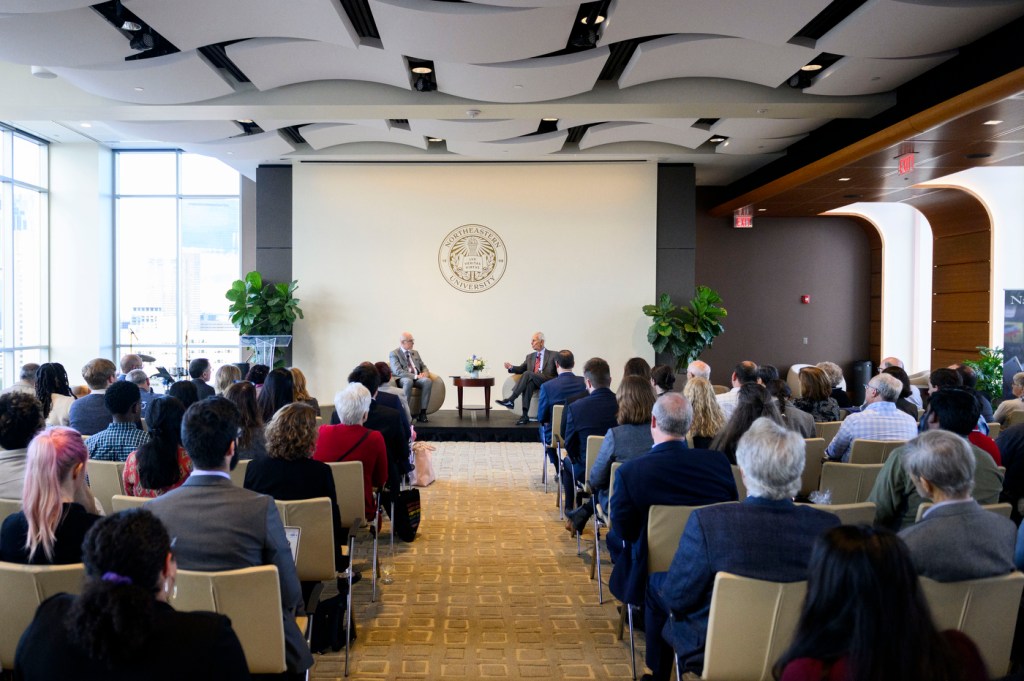
Computer science is much more than a niche skill practiced solely by coders and technicians, entrepreneur Amin Khoury said Wednesday. It is fast becoming a universal tool—a language employed by learners, workers and dreamers across all fields.
“I think computer science is going to be embedded in every course of study and in every industry,” Khoury told Joseph E. Aoun, president of Northeastern, in a fireside chat that kicked off the 40th anniversary celebration of the Khoury College of Computer Sciences.
Khoury’s inspiring vision underscored his 2018 investment in the college that is named in his honor.
“We want every student to be versed in tech literacy and data literacy and human literacy,” said Aoun, referring to the triad that defines Northeastern’s commitment to humanics, the curriculum he unveiled in his book, “Robot-Proof: Higher Education in the Age of Artificial Intelligence.”
“The Khoury College with its [large number of] combined majors is an innovator in this space,” he said.
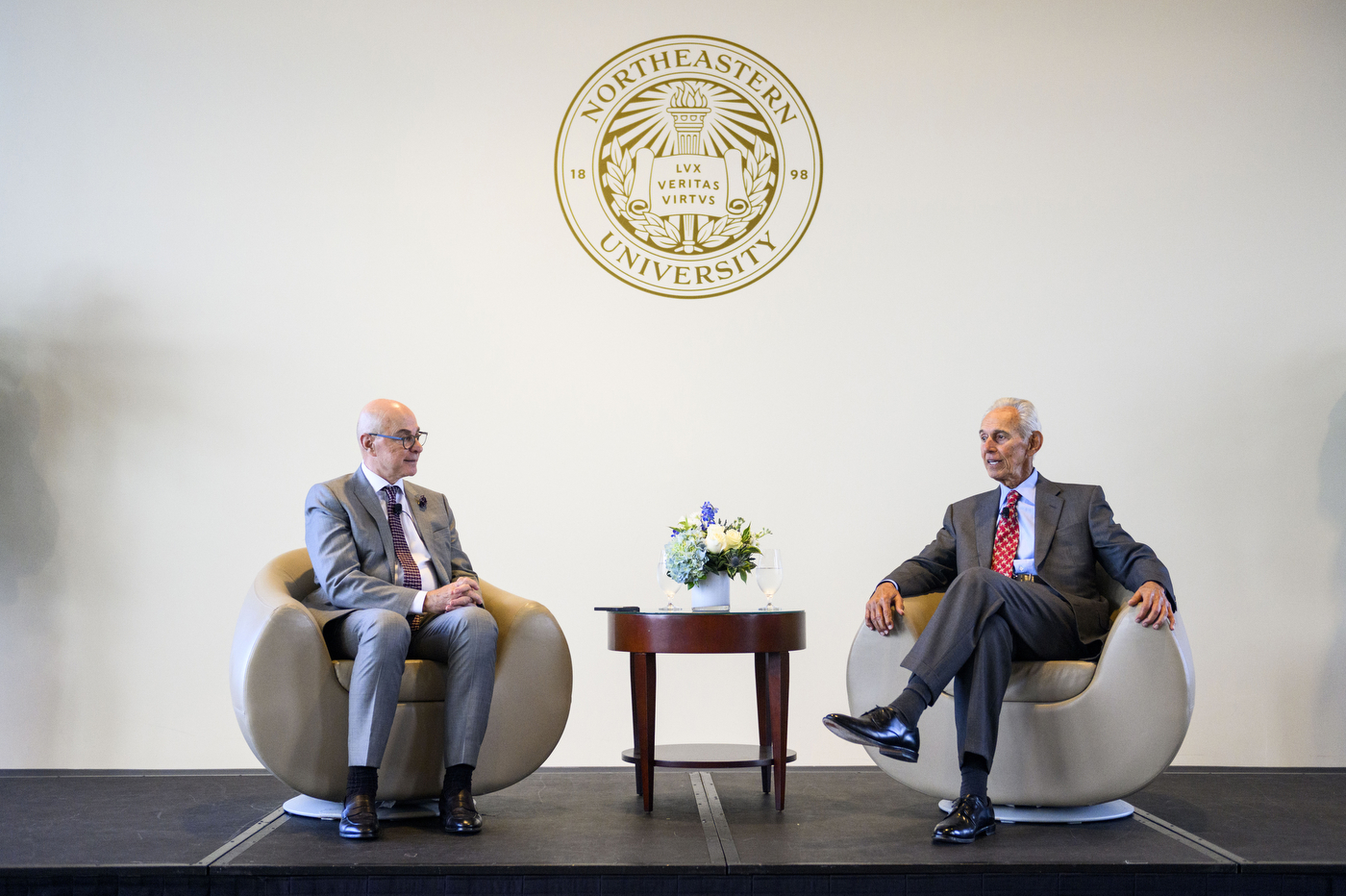
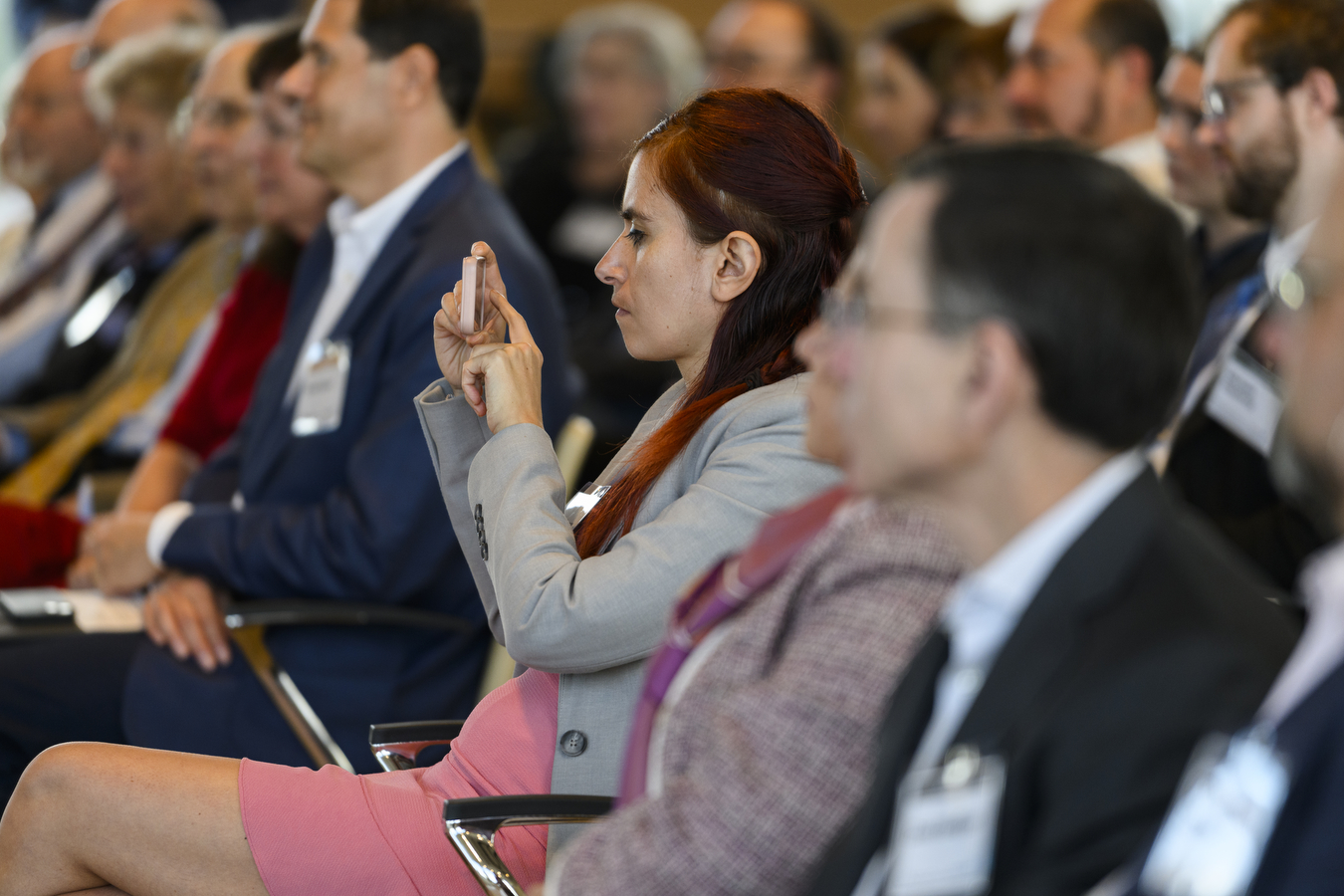
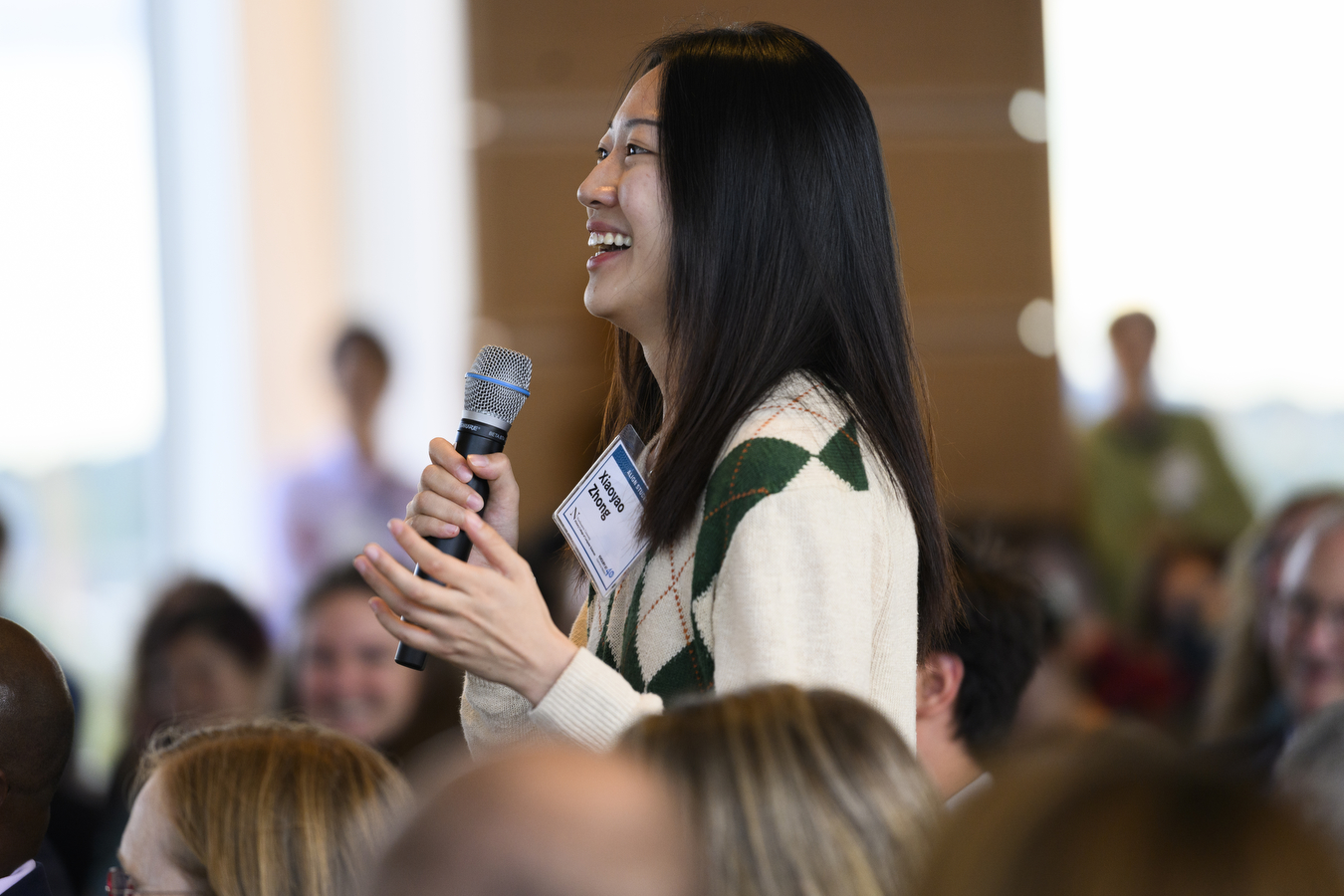
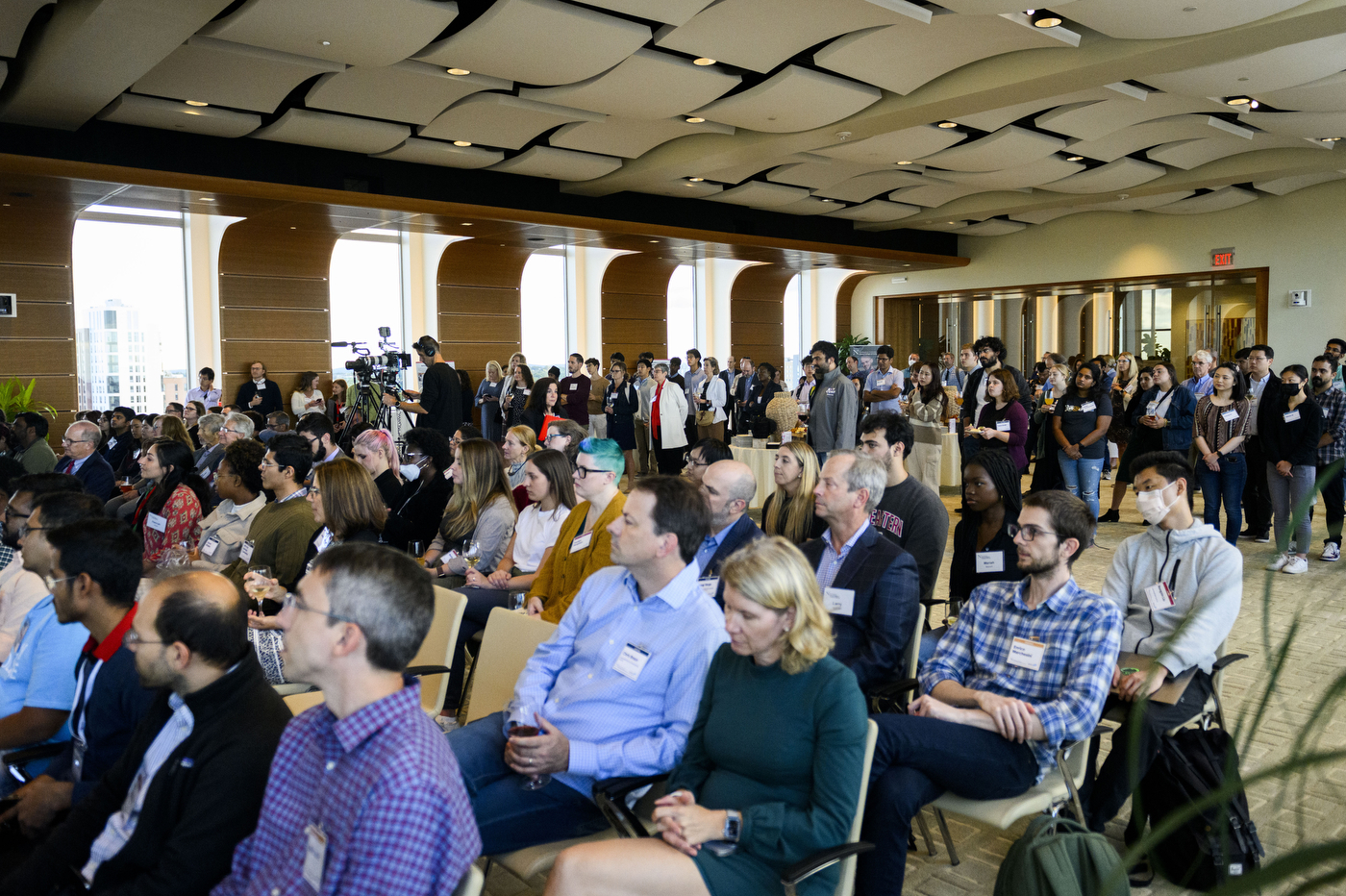
The celebration was attended by hundreds of students, faculty, staff and alumni on the top floor of East Village on the Boston campus, kicking off the college’s “40 for 40” commemoration—a series of events over the next 40 weeks across Northeastern’s 13 campuses from California to Canada to the United Kingdom.
“We’re probably the fastest-growing computer sciences college in the country,” Khoury said. “Whether it’s computer sciences and engineering, or computer sciences and business, or fintech or biology or any other discipline, it seems to me computer science is going to be pervasive in pretty much every industry.
“We’re training tomorrow’s leaders,” Khoury continued. “These are not going to be folks that are only working in computer science laboratories. We are focused on combined majors and we have a global campus system—nobody else has that. We’re training computer scientists in California, in London, in Burlington, Massachusetts; in Vancouver, in Oakland, California. What we have is amazing.”
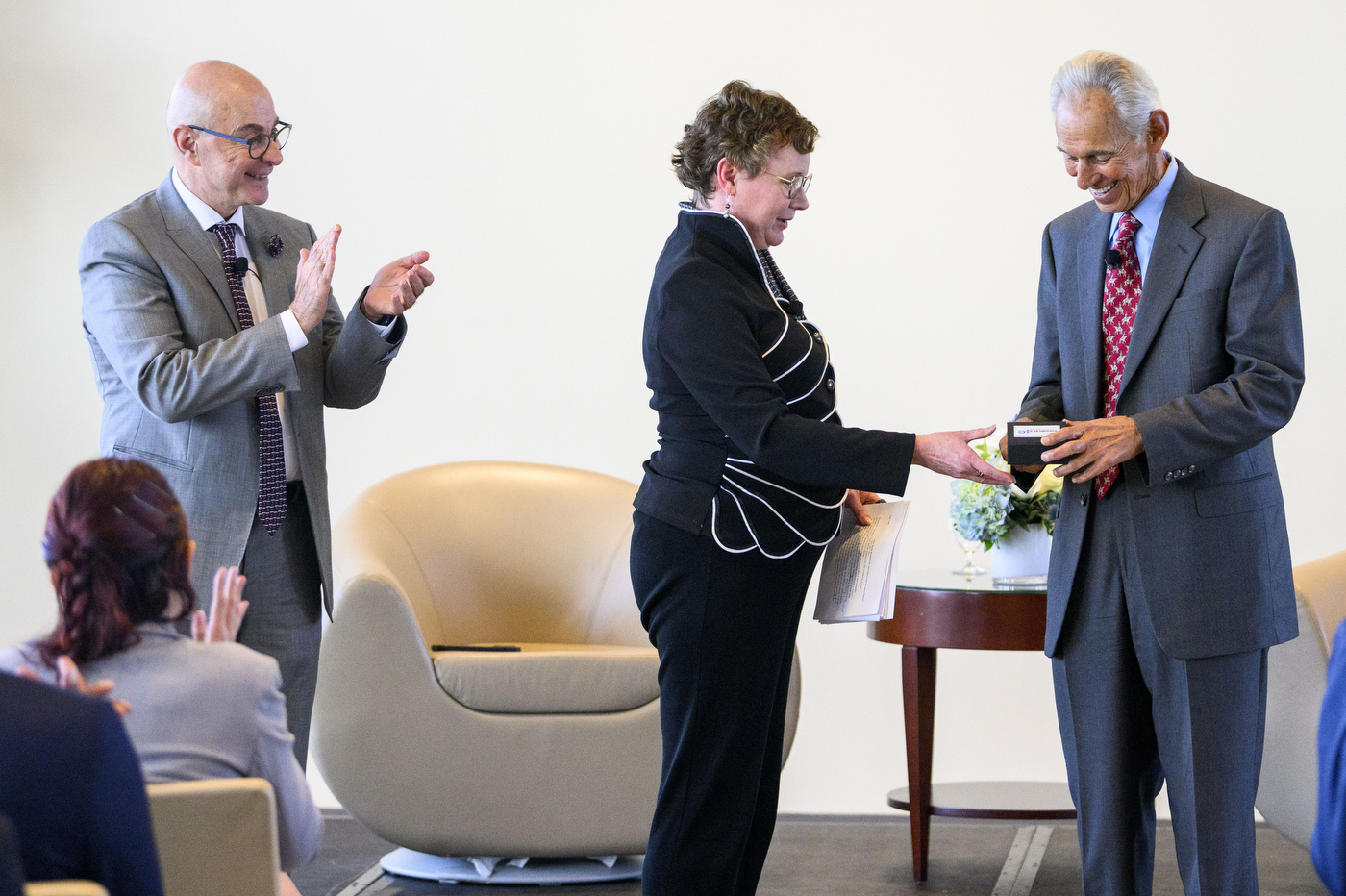
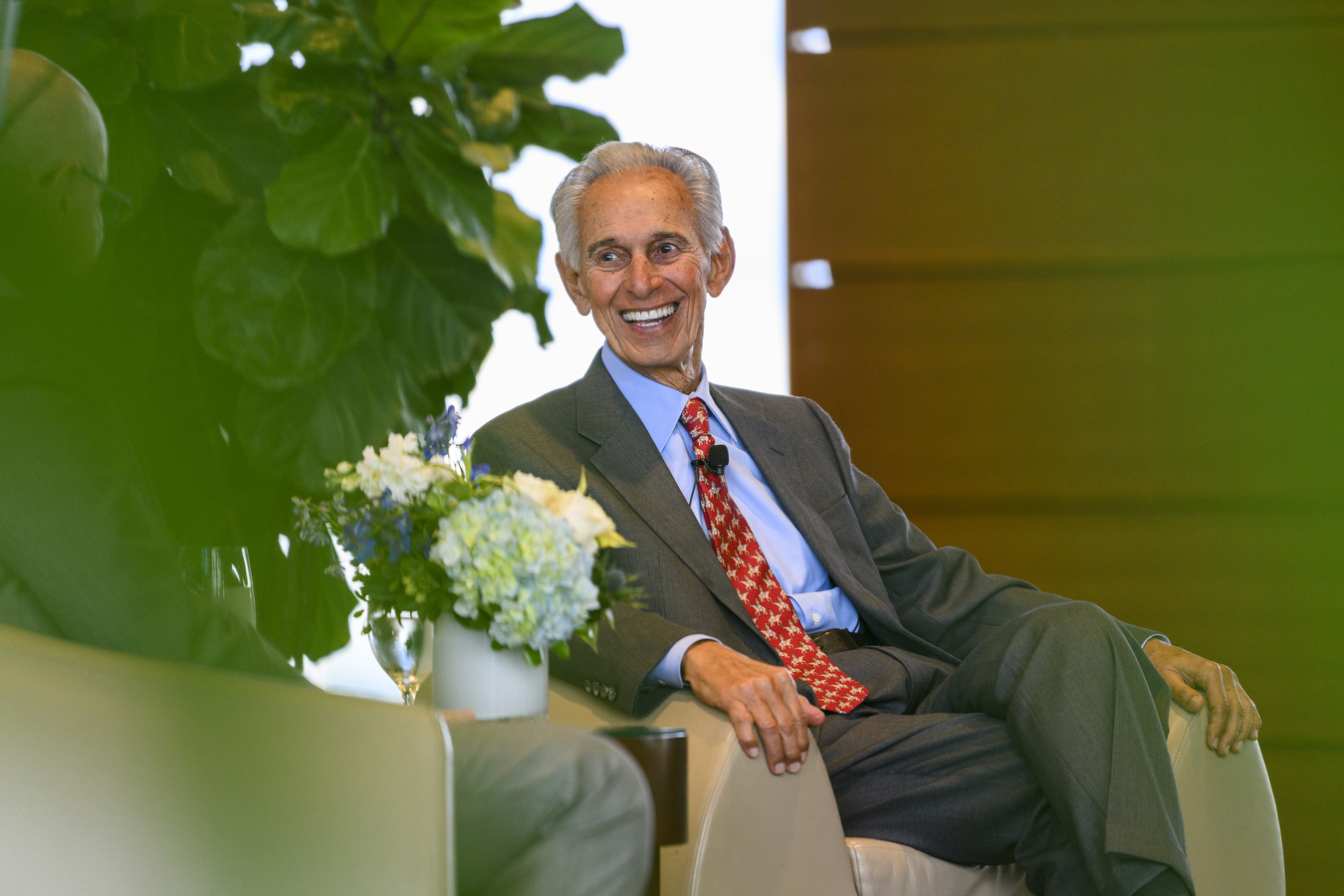
Amin Khoury’s story as global entrepreneur dates back to a research lab in his home state of Pennsylvania.
“While I was there, I developed equipment for doing automatic analysis of finished pharmaceutical dosage forms, which helped the company to be able to do storage stability studies on hundreds of drugs under various conditions,” said Khoury, who was made president of the company after he had successfully marketed and sold the equipment. “It was innovative and reduced the cost of doing all that analytical testing.”
Khoury then started his own clinical diagnostic testing company, based on the product he had developed. “And we became the largest in the country,” he told Aoun.
So why, amid so much early success, did Khoury take a hiatus to earn an MBA at Northeastern?
“I thought that maybe I had missed something because I had no business training whatsoever,” Khoury said in response to Aoun’s question. “And I loved being here.”
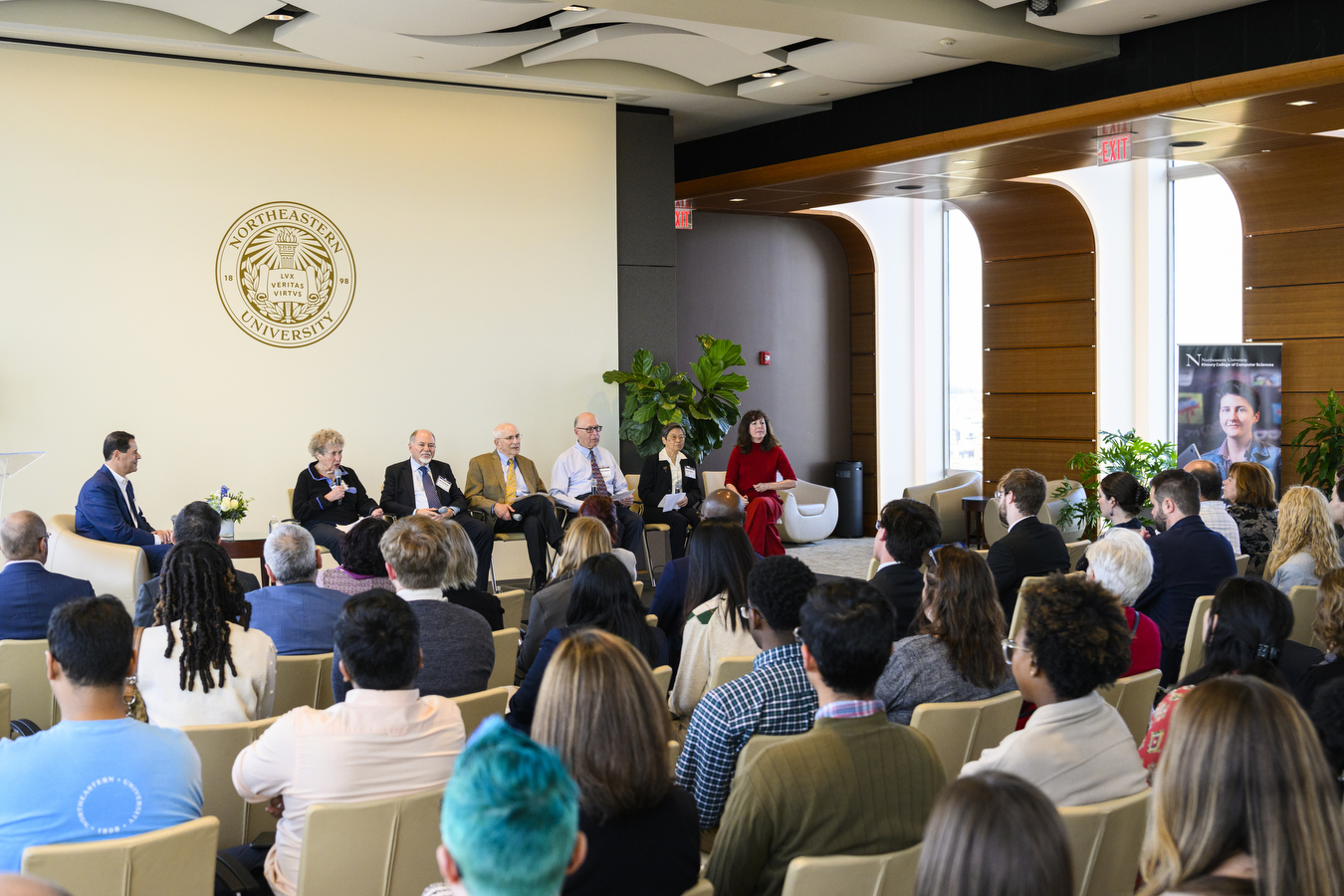
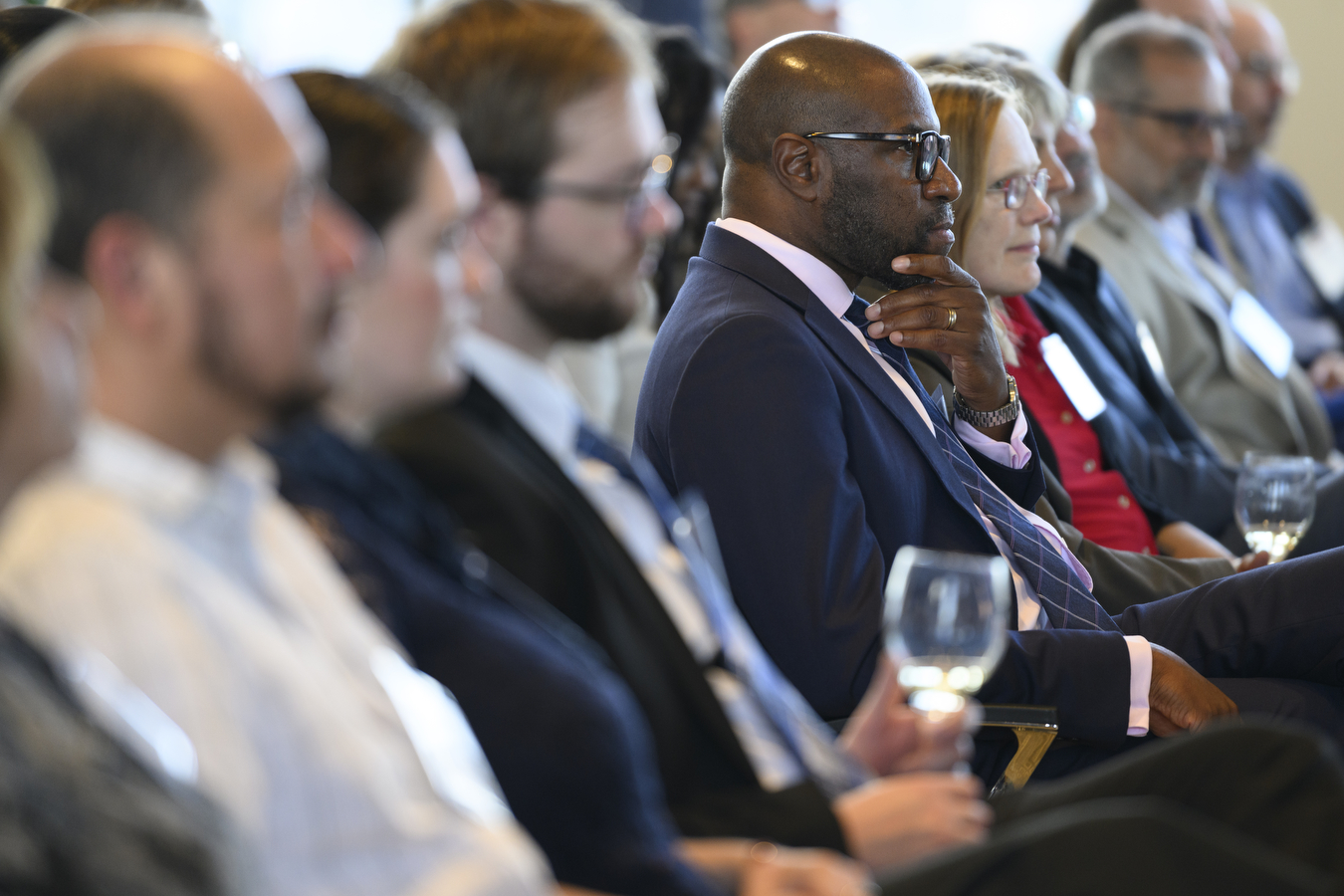
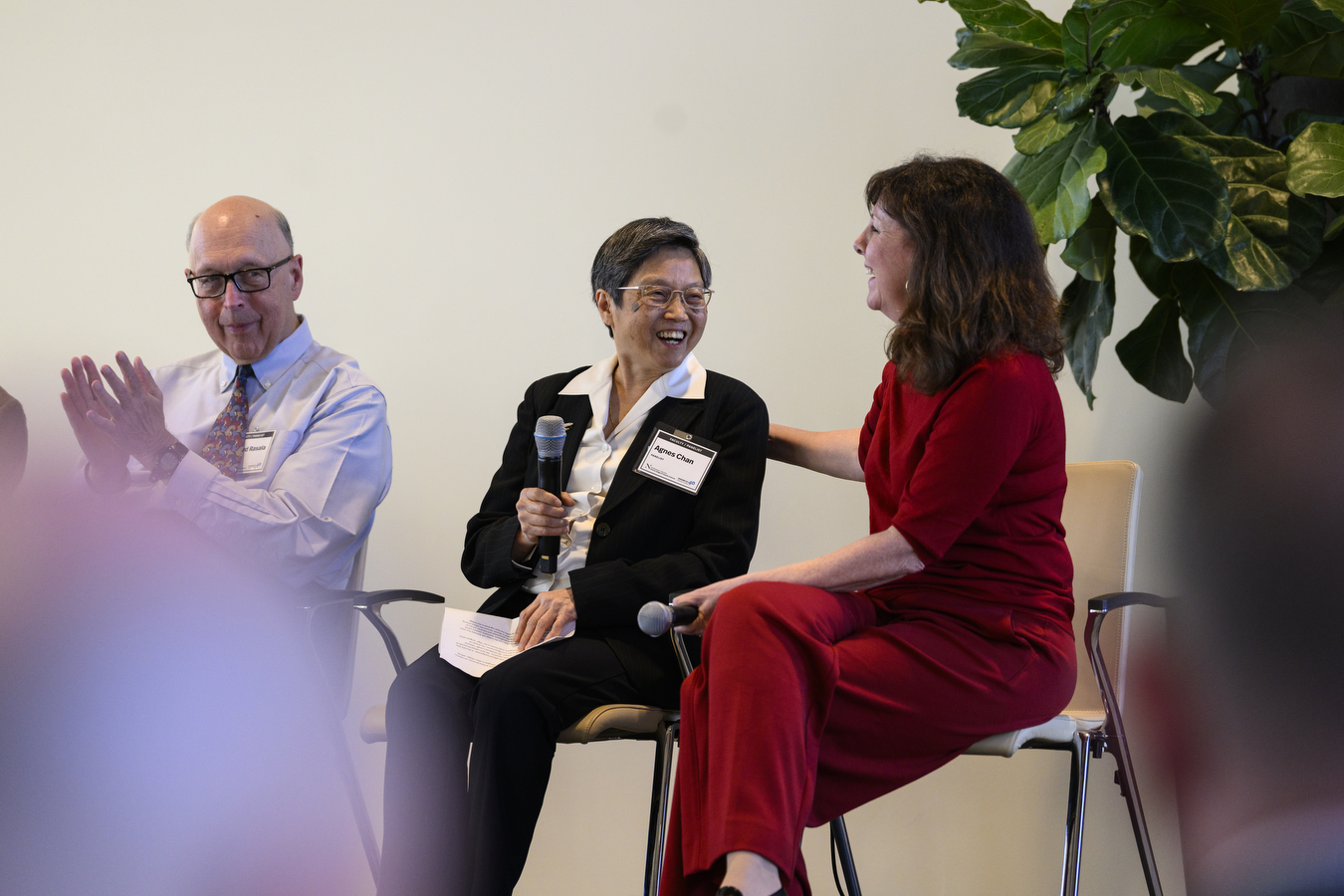
He then ventured into the aerospace industry. It began with Khoury identifying a niche market—the interior equipment for passenger cabins of airplanes—and the resulting company, BE Aerospace, became his signature achievement.
“I started small, with equipment for watching television or listening to music or turning on the lights,” Khoury told Aoun. “Because at that time, you couldn’t reach out to use devices in the seat arm.
That was Khoury’s first product.
“From there I went to seats, and from there to cooking equipment and oxygen and lighting and one thing after the other. Starting from nothing, we eventually became a $5 billion revenue company.”
He started another company in aviation distribution.
“I had every aviation airliner in the world as a customer,” said Khoury, explaining how he recognized another need that he could fill. “And they’re not being served very well by the disparate distribution function for component parts that exists. And so we started a business there and it became the largest in the world also.”
Khoury eventually sold his two companies to Raytheon and Boeing.
More recently, Khoury has been investing in real estate businesses with his two sons, who are both entrepreneurs.
“That’s been rewarding,” he told Aoun.
He also has been assisting a doctor who has been developing room sanitizers to protect people from viral or bacterial infection.
“I can tell you that giving back is so much more fun than actually starting a company or building a company or making money,” Khoury said.
When asked by a student about the importance of serendipity—of being in the right place at the right time—Khoury nodded and said, “I think you need to have a certain amount of luck. I don’t think you can do it all intellectually. You know, it’s interesting: The harder you work and the less you sleep, the more luck you have.”
Elizabeth Mynatt, dean of Khoury College, presented Khoury with the first of 40 awards that will be conferred upon leaders who have helped drive the college’s mission over the past four decades. An award was also presented to Chris Jelly, founder of the Jelly Incubation Fund for Khoury College, which has supported student projects since 2017.
Aoun came away from the event with a call to action.
“The future is bright,” he said with a smile to the students, faculty and staff of Khoury College. “But don’t rest on your laurels. We’re expecting you to continue to provide us with innovations.”
The event also featured a panel discussion with past leaders of the college who lauded the successes of the college over the past four decades. The panel featured Carla Brodley, dean of inclusive computing and executive director of the Center for Inclusive Computing; moderator Jay Aslam, professor; Larry Finkelstein, professor emeritus and dean emeritus ‘94; Richard Rasala, professor emeritus; Agnes Chan, professor emeritus and executive director of Information Assurance and Cybersecurity at Northeastern; Betty Salzberg, professor emeritus; and Mitch Wand, professor emeritus; all of the Khoury College of Computer Sciences.
For media inquiries, please contact media@northeastern.edu.





